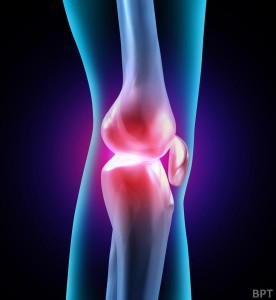NJ Top Docs Talk About Osteoarthritis Pain
 (BPT) – Arthritis is the most common cause of disability in the U.S.1. The most common type is osteoarthritis (OA), which affects approximately 27 million adults nationwide2. OA occurs when the protective cartilage on the ends of your bones wears down over time, causing pain in joints such as the hips, knees and hands. The majority of people living with OA may experience limited mobility, as well as trouble performing activities of daily living3.
(BPT) – Arthritis is the most common cause of disability in the U.S.1. The most common type is osteoarthritis (OA), which affects approximately 27 million adults nationwide2. OA occurs when the protective cartilage on the ends of your bones wears down over time, causing pain in joints such as the hips, knees and hands. The majority of people living with OA may experience limited mobility, as well as trouble performing activities of daily living3.
Nonsteroidal anti-inflammatory drugs (NSAIDs) are a common OA treatment: 50 percent of patients with OA are treated with an NSAID4. However, information from the U.S. Food and Drug Administration discussed the safety of long-term use of NSAIDs, noting that they should be used at the lowest effective dose for the shortest possible duration consistent with individual patient treatment goals5.
ZORVOLEX® (diclofenac) capsules – a low dose treatment option for OA pain – was specifically designed to address these recommendations. ZORVOLEX was first approved by the FDA for mild to moderate acute pain in adults in October 2013 and was approved in August 2014 for the management of OA pain. ZORVOLEX is the first low dose NSAID created using a specialized technology to produce smaller drug particles. ZORVOLEX is rapidly dissolved, which can provide effective pain relief at a low dose.
“Because OA patients often take pain medications for long periods of time, there is a fundamental need for new treatments,” said Dr. Roy Altman, a rheumatologist from Los Angeles, California. “The approval of ZORVOLEX, a low dose option for the management of OA pain, is a welcome and meaningful advance.”
Ask your doctor if ZORVOLEX is right for you. To learn more about this new treatment option and about co-pay savings for eligible insured patients, visit www.ZORVOLEX.com.
ZORVOLEX is indicated for the management of mild to moderate acute pain and osteoarthritis pain.
IMPORTANT SAFETY INFORMATION
All prescription Non-Steroidal Anti-Inflammatory Drugs (NSAIDs), like ZORVOLEX, may increase the chance of heart attack or stroke that can lead to death. This chance increases with higher doses of NSAID medicines; with longer use of NSAID medicines; or in people who have heart disease.
ZORVOLEX should not be used right before or after a certain heart surgery called a “coronary artery bypass graft (CABG).”
NSAID medicines can cause ulcers and bleeding in the stomach and intestines at any time during treatment. Ulcers and bleeding can happen without warning symptoms and may cause death. The chance of a person having bleeding or getting an ulcer increases with higher doses or longer use of NSAID medicines, taking other medicines called “corticosteroids” and “anticoagulants”, smoking, drinking alcohol, older age, or having poor health.
Tell your healthcare provider about all of your medical conditions, if you are pregnant or breast feeding, and about all of the medicines you take because NSAIDs and some other medicines can interact with each other and cause serious side effects.
ZORVOLEX should not be taken in late pregnancy.
Do not take ZORVOLEX if you had an asthma attack, hives, or other allergic reaction with aspirin, or any other NSAID medicine.
Life threatening allergic reactions can occur with ZORVOLEX. Get help right away if you’ve had swelling of the face or throat or trouble breathing.
Other serious side effects of NSAIDs include: high blood pressure, heart failure causing swelling (fluid retention), kidney problems including kidney failure, low red blood cells, life-threatening skin reactions, and liver problems including liver failure. The most common side effects reported in studies using ZORVOLEX were swelling, nausea, headache, dizziness, vomiting, constipation, itching, diarrhea, gas, leg or foot pain, abdominal pain, stuffy or runny nose, abnormal blood tests, high blood pressure, and heartburn.
ZORVOLEX should be used exactly as prescribed, at the lowest dose possible, and for the shortest time needed for your treatment.
These are not all the side effects reported with ZORVOLEX. Talk to your healthcare provider or pharmacist for more information about NSAID medicines. Call your doctor for medical advice about side effects. You may report side effects to FDA at 1-800-FDA-1088.
1 Centers for Disease Control and Prevention. Arthritis: Meeting the Challenge of Living Well: At A Glance 2013. http://www.cdc.gov/chronicdisease/resources/publications/AAG/arthritis.htm.
2 Neogi T. et al. The epidemiology and impact of pain in osteoarthritis. Osteoarthritis Cartilage, 2013 http://www.ncbi.nlm.nih.gov/pubmed/23973124.
3 The Mayo Clinic. Osteoarthritis. http://www.mayoclinic.org/diseases-conditions/osteoarthritis/basics/definition/con-20014749.
4 IMS National Prescription Audit, USC classes. 2008 – 2014.
5 U.S. Food and Drug Administration. Public Health Advisory – FDA Announces Important Changes and Additional Warnings for COX-2 Selective and Non-Selective Non-Steroidal Anti-Inflammatory Drugs (NSAIDs).